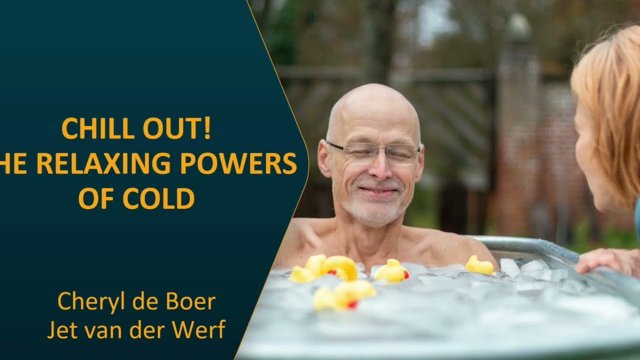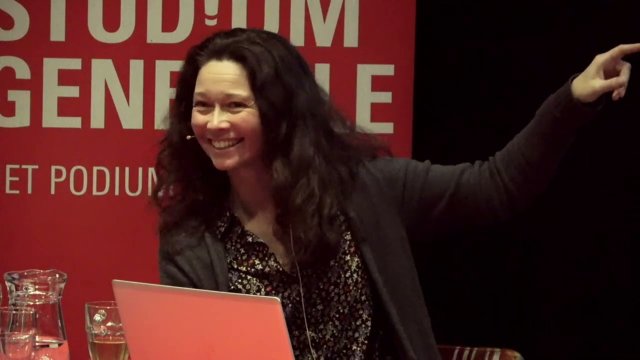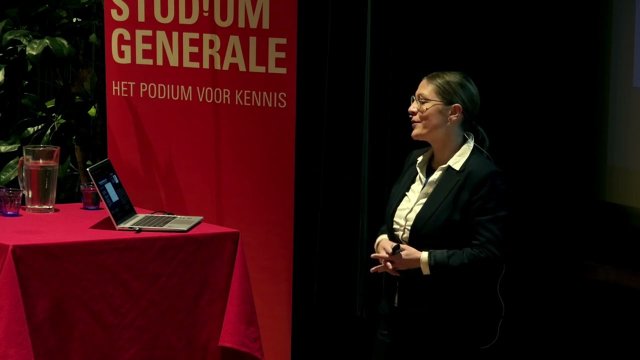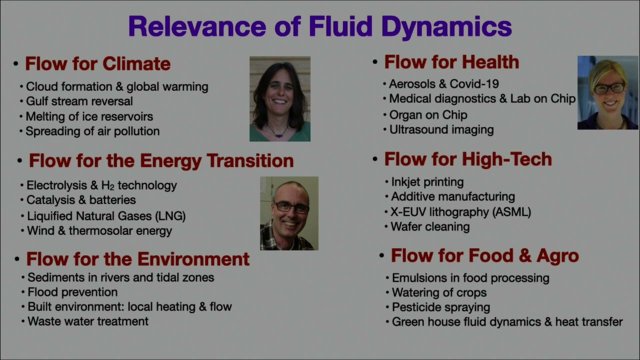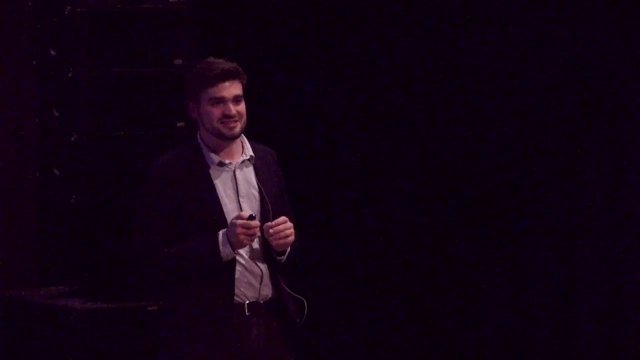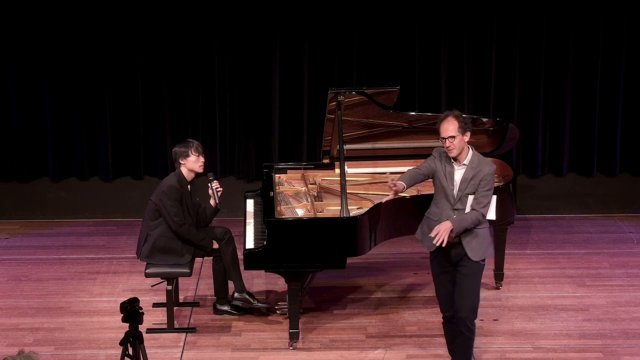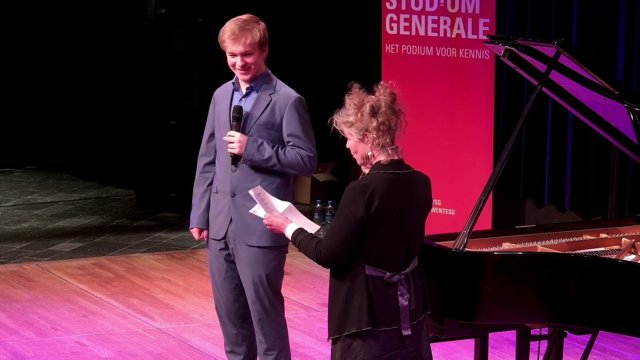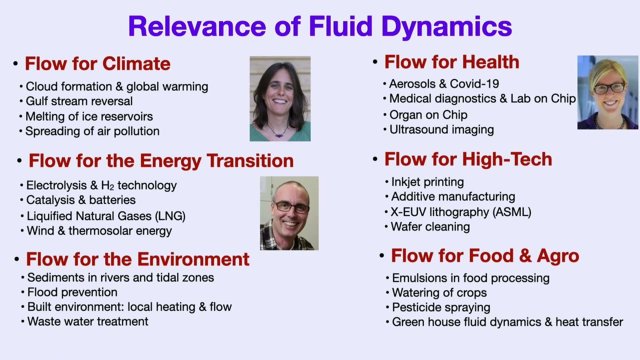Lectures Autumn 2023
Chill out: the frelaxing powers of cold.
Your mum probably told you to put on a warm coat on chilly days, because otherwise you would catch a cold. She was wrong! Exposure to low temperatures seems to be very healthy for a human being. Iceman Wim Hof discovered that cold can strengthen and relax both mind and body. Dr. Cheryl de Boer (ITC) and Jet van der Werf MSc (ET) are both certified Wim Hof Method trainers and explain the beneficial effects of breathing techniques, cold showers and ice baths.
Climate action
Most people agree that action must be taken to reduce the effects of climate change. But what is the most effective way to set things in motion? Is blocking a highway or gluing yourself to a famous piece of art the right way? Or is establishing an academic climate centre more effective? Discussion with: prof.dr.ir. Albert van den Berg, dr. Cheryl de Boer (founders of the UT Climate Centre) and dr. Ernst-Jan Kuiper (climate scientist and Extinction Rebellion activist).
Political solutions for the climate crisis: Florence Metz
Sundays without cars on the highway. Instead people, happy to picnic on the tarmac. In the 1970s using petrol was prohibited a few times as Europa had a severe energy problem because of a shortage of oil. Some countries like France and Denmark responded effectively and transformed their energy sectors into nuclear and wind energy. Why did they succeed? Is there a relation between the political system and the success of an energy transition? Fundamental questions in our times of climate crisis. Dr Florence Metz is assistant professor of Governance Resilience (UT) and winner of the Professor De Winter Prize 2022
Flow for future II
Panta rhei - alles stroomt. De oceaan, rivieren, of op kleinere schaak, inkt in printers. Vloeistofdynamica is overal om ons heen en in ons, van de nanometer tot op astrofysische schaal. Dit jaar viert de UT Physics of Fluids-groep haar 25e verjaardag en trakteert je op vier perspectieven op vloeistofdynamica. Prof.dr. Detlef Lohse (UT) – Vloeistofdynamica van de toekomst; prof.dr. Daniel Bonn (UvA) – Stromingsleer in de voedingsmiddelenindustrie; dr. Tim Segers (UT) – Snelle en betrouwbare inktjetprinters.
Nobel lectures
The Nobel Prizes in Physics, Chemistry and Medicine are awarded every year in October. Curious who will receive this honor in 2023? Then join the annual Nobel Lectures organized by TNW and Studium Generale! Scientists and science journalists explain what these prices are all about and who the winners are.
This year we have the following line-up:
Dr. Peter Kraus (Vrije Universiteit Amsterdam) explains the Nobel Prize for Physics 2023 won by Pierre Agostini, Ferenc Krausz and Anne L’Huillier for their experiments, who have given humanity new tools for exploring the world of electrons inside atoms and molecules. The laureates have demonstrated a way to create extremely short pulses of light that can be used to measure the rapid processes in which electrons move or change energy. Read more.
Prof. dr. Daniël Vanmaekelbergh (Utrecht University) elucidates the Nobel Prize for Chemistry 2023 won by Moungi G. Bawendi, Louis E. Brus and Alexei I. Ekimov for their discovery and development of quantum dots, nanoparticles so tiny that their size determines their properties. These smallest components of nanotechnology now spread their light from televisions and LED lamps, and can also guide surgeons when they remove tumour tissue, among many other things. Read more.
Dr. Gorben Pijlman (Wageningen University) explains the Nobel Prize for Physiology or Medicine 2023 won by Katalin Karikó and Drew Weissman for their discoveries concerning nucleoside base modifications that enabled the development of effective mRNA vaccines against COVID-19. The laureates contributed to the unprecedented rate of vaccine development during one of the greatest threats to human health in modern
Promising pianists: Rio Ueyama
At the last edition of the International Piano Competition for Young Musicians in Enschede most young pianists were remarkably talented. Two prize winners will perform this evening and tell about their life as a rising star. Renowned pianist and teacher Michail Markov will give a public masterclass. Rio Ueyama is a Japanese, born in Poland. He started learning to play the piano at the age of 4. He will play music of Chopin and Prokofjev. Alexander Jansen (Netherlands) just finished high school and is an outstanding talent who will perform pieces by Chopin, Debussy and Liszt.
Promising pianists: Alexander Jansen
At the last edition of the International Piano Competition for Young Musicians in Enschede most young pianists were remarkably talented. Two prize winners will perform this evening and tell about their life as a rising star. Renowned pianist and teacher Michail Markov will give a public masterclass. Rio Ueyama is a Japanese, born in Poland. He started learning to play the piano at the age of 4. He will play music of Chopin and Prokofjev. Alexander Jansen (Netherlands) just finished high school and is an outstanding talent who will perform pieces by Chopin, Debussy and Liszt.
Flow for future I
Panta rhei – everything flows. The ocean, the atmosphere, cryogenic fuels in industrial plants, or, on a small scale: viruses and the blood running through our veins. Fluid Dynamics is everywhere around and inside us, ranging from nanometers to astrophysical scales. This year UT’s Physics of Fluids group celebrates its 25th birthday and treats you to four perspectives on fluid dynamics. With: prof. Dr. Detlef Lohse (UT) - Flow for future; prof. Dr. Devaraj van der Meer (UT) - Flowing energy: the challenges of cryogenic fuels and Dr. Hanneke Gelderblom (TUe) - Flow for health: The fluid dynamics of disease transmission

